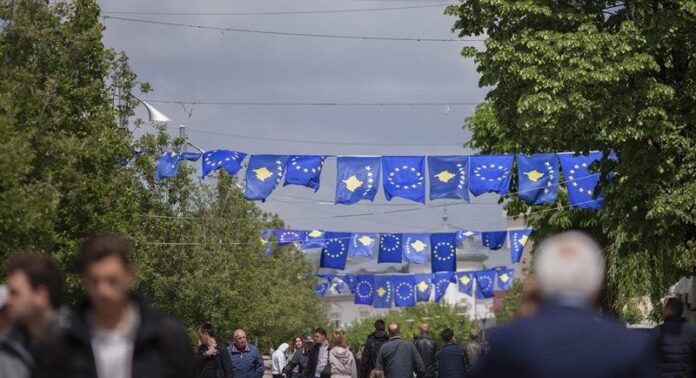The decision to liberalise visas for citizens of Kosovo was approved by the 27 EU ministers at the Council of Internal Affairs in Brussels on Thursday, which must come into effect no later than 1 January 2024, according to Euractiv.
Kosovo was the last remaining country in the region to still require a visa to enter the European Union, causing significant headaches for Kosovars wanting to work, study, travel for leisure or visit family members.
After years of obstacles and changing requirements, the Commission proposed to lift the visa requirement to ensure the whole Western Balkan region is under the same visa regime.
The decision was approved in the first reading without discussion, as the permanent representatives of each member state had previously agreed on the matter in an earlier ambassadors’ meeting.
As per the decision, Kosovo citizens can travel visa-free when the European Travel Authorisation and Verification System (EITAS) is fully operational no later than the start of 2024.
Swedish Migration Minister Maria Malmer Stenergard said, “Kosovo has made great efforts to improve its security and migration management and to align its visa policy with that of the EU. We hope our cooperation in these fields will continue to be fruitful.”
The new rules will allow Kosovo passport holders to travel to the EU without a visa for 90 days in any 180 days. The rule will need to be adopted by the European Parliament before it can be signed and published in the official EU journal.
Kosovo’s Prime Minister Albin Kurti tweeted that his country is “one step closer” and he is “pleased by the EU Council’s unanimous decision today in favour of visa-free travel for our citizens. The long wait is coming to an end. We look forward to the upcoming final steps by the European Parliament.”
As the vote was unanimous, the five states, Spain, Malta, Romania, Greece and Slovakia, which do not recognise Kosovo’s sovereignty, all voted in favour.
Albanian Prime Minister Edi Rama welcomed the news on Facebook.
“A step unjustly delayed for years was taken today by the EU, which is finally removing from itself the stain of shame of treating Kosovo as if it were a country outside of Europe! Congratulations not only to Kosovo but also to the European Union,” Rama wrote.
Meanwhile, all eyes are on Belgrade and Pristina as EU envoy Miroslav Lajcak is due to visit both capitals this week, days ahead of a meeting set to take place in Ohrid, North Macedonia, where the next step in the normalisation of relations between them is likely to occur.
On 27 February, Kurti and his Serbian counterpart Aleksander Vucic met in Brussels to discuss the EU proposal to end decades of tensions between the neighbours. While both parties agreed verbally in terms of intention to sign the agreement, Vucic later backtracked in front of a domestic audience.
Lajcak will spend two days in Pristina in what are expected to be intense meetings with political figures, including the opposition, in preparation for the meeting in Ohrid on 18 March.


